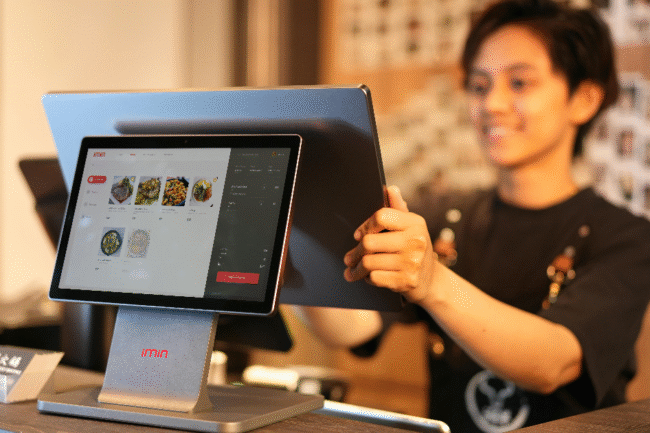
The Cost of Apple POS vs Android POS
Let’s start with the most important factor: cost. Both systems have their pros and cons when it comes to price, so let’s see how they compare.
Apple POS – Higher Upfront Cost
Apple POS systems are known for their high-quality hardware. If you’re already using Apple devices like iPads or Macs, it might make sense to stick with the Apple ecosystem. However, Apple POS systems are often more expensive upfront because of the premium hardware.
Android POS – Affordable and Flexible
Android POS systems, on the other hand, tend to be much more affordable. The hardware (like Android tablets or smartphones) is cheaper than Apple devices, and you’ll find a range of budget-friendly options. This makes Android POS an ideal choice for smaller businesses or startups that need a reliable system without breaking the bank.
Cost Comparison Table:
| System | Upfront Cost | Subscription Fees | Best For |
|---|---|---|---|
| Apple POS | Higher | Monthly/Annual Fees | Businesses using Apple devices |
| Android POS | Affordable | Monthly/Annual Fees | Small businesses or those on a budget |
Suitability: Which System is Best for Your Business?
The next factor to consider is how well each system fits your business needs. Are you running a high-end retail store or a mobile food cart? Let’s break it down.
Apple POS – Perfect for Premium Businesses
Apple POS is sleek, easy to use, and integrates beautifully with other Apple devices. This makes it an excellent option for high-end retail stores, cafes, or any business that focuses on providing a premium customer experience. Plus, if your business already uses Apple devices (like iPads, Macs, etc.), Apple POS offers seamless integration.
Android POS – Flexible for Any Business
| Business Type | Apple POS | Android POS |
|---|---|---|
| Retail | Best for premium brands | Flexible, customizable |
| Restaurants | Smooth, reliable service | Cost-effective, scalable |
| Mobile Businesses | Premium experience | Affordable, portable |
Scalability: Can Your POS System Grow with Your Business?
As your business grows, so do your POS needs. You’ll need a system that can scale with your company. Here’s how Apple POS vs Android POS systems measure up.
Apple POS – Great for Steady Growth
While Apple POS is reliable, it’s not as flexible as Android when it comes to scalability. It’s great for smaller businesses or companies that don’t expect to grow rapidly, but it may not be as adaptable as you expand.
Android POS – Built for Growth
| System | Scalability | Best For |
|---|---|---|
| Apple POS | Limited scalability | Steady, small growth |
| Android POS | Highly scalable | Rapid business growth |
Which System Integrates Better with Other Software?
Your POS system should easily connect with other tools you use, like accounting software, customer management systems, and inventory tracking.
Apple POS – Seamless with Apple Products
If you’re already using Apple products, Apple POS integrates smoothly with other Apple software, like QuickBooks, Shopify, and various accounting tools. But its integration outside the Apple ecosystem may be limited, which could be a drawback for businesses that need more flexibility.
Android POS – A Wide Range of Integration Options
Security: How Safe Are These Systems?
| POS System | Security Features | Compliance |
|---|---|---|
| Apple POS | End-to-end encryption, PIN codes | PCI compliant |
| Android POS | End-to-end encryption, 2FA | PCI compliant |
Try AireusPOS Demo
Ready to see how Aireus POS can streamline your operations?
Try demo of Aireus POS today and see how it can help you work faster and keep your guests happy.



